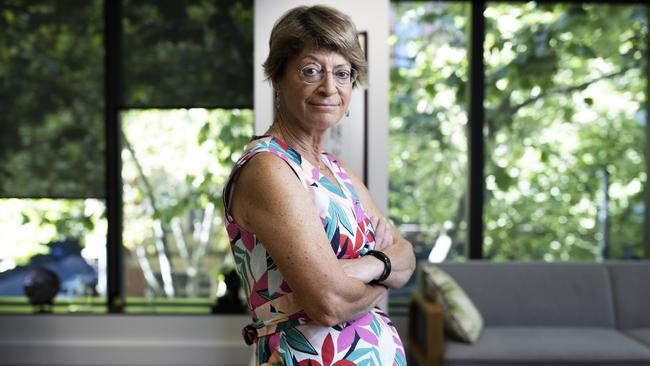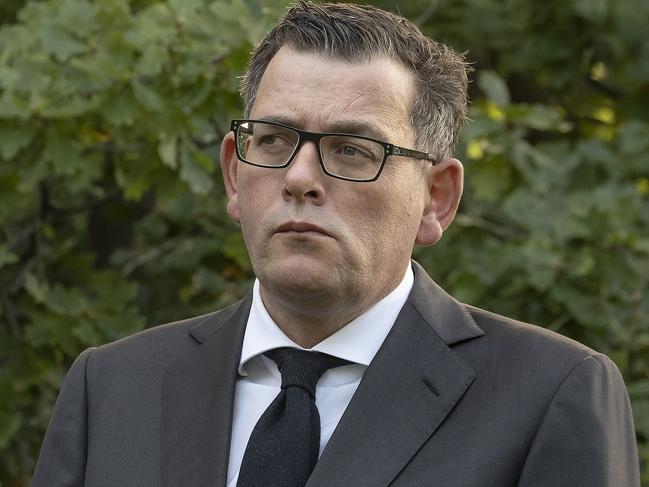Ombudsman delivers parting shot at Dan Andrew’s leadership style
Outgoing Ombudsman Deborah Glass says there was zero relationship between her and the premier she was trying to hold to account.

The outgoing Victorian Ombudsman has slammed former premier Daniel Andrews for “fundamentally” failing to understand the role of integrity watchdogs in exposing ethical shortcomings within his government.
Deborah Glass says that as criticism of Mr Andrews grew, he became more “prickly” and “snide” towards independent oversight bodies scrutinising Labor’s failings.
These included branch-stacking scandals, electoral rorts, the heavy-handed pandemic lockdowns, the aborted Commonwealth Games bid and the “creeping politicisation” of the public service, which created “a culture of fear” and poisoned the decision-making process.
As a result of decisions taken under the Andrews government, Victorians face decades of higher taxes to help pay for gross debt which is forecast to blow out to $239bn by 2026-27, easily the highest of any state.
In an exclusive interview ahead of her departure after a decade as Ombudsman, Ms Glass said she was surprised by the level of the fear among public servants under Mr Andrews’ leadership, describing them as “scared rabbits”.
When investigating the politicisation of the public service after nine years of Labor rule, she said it became so difficult to persuade public servants to speak to her office that she initially feared she might not be able to write the report. “I didn’t expect the extent of the fear,” she said. “The process of trying to chase rabbits down holes and finding a lot of scared rabbits was very challenging.”
Ms Glass revealed she had no relationship with Mr Andrews during his nine years as premier.
“I would say it was none for pretty much his entire term,” she said. “But, towards the end, it was very clear that he was becoming increasingly prickly. And that played out publicly in comments he made … and in what you might call snide remarks.
“When you’re tasked with investigating the government of the day, yes, that is going to bring you into a certain amount of conflict whether you like it or not.”
Mr Andrews became increasingly frustrated by Ms Glass’ strongly worded reports, which were frequently critical of his government’s ethical behaviour during years when the state Liberal opposition was weak, divided and unable to hold Labor to account.
Mr Andrews lashed out at Ms Glass late last year, after he had resigned as premier, saying that the state’s integrity officers were not entitled to “pretend that anyone voted for them. They’re not entitled to pretend that they’ve somehow got a mandate that is equal to, let alone superior to, the duly elected government”.
“There’s not an accountability officer who doesn’t want more money, more power. That’s fine, that’s their job,” he said.

Ms Glass said that Mr Andrews’ comments “fundamentally misconceived the role of integrity agencies”.
The Glass investigation which most got under the former premier’s skin was into the politicisation of the public service. It found a “culture of fear” and “creeping politicisation” among the 300,000-strong public service.
She found this culture of fear was stopping bureaucrats from giving frank and fearless advice to the government, eroding the traditional role of the public sector.
As an illustration of the centralisation of power, she highlighted the size of the premier’s office, which in Mr Andrews’ final year had roughly the same number of staff as the prime minister and NSW premier combined.
The result of this “creeping politicisation” and fear was a flawed decision-making process where many big ideas – including bad ones – were not tested or debated before being adopted.
She cited the controversial $125bn yet-to-be-built Suburban Rail Loop project which was hatched amid secrecy in the lead up to the 2018 election without the involvement of state’s top transport bureaucrats and then outsourced to consultants in an effort to “prove-up” the project.
“We know in the case of the Suburban Rail Loop that the head of the Department of Transport was kept completely in the dark over the development stage. We know that Infrastructure Victoria … was blindsided by it, so we know that they weren’t getting advice from traditional sources,” she said. “So where was the advice coming from? Well, it’s coming from consultants. It’s coming from ministerial advisers (and) this is when you get advice in echo chambers. You will hear people tell you what you want to hear.”








To join the conversation, please log in. Don't have an account? Register
Join the conversation, you are commenting as Logout